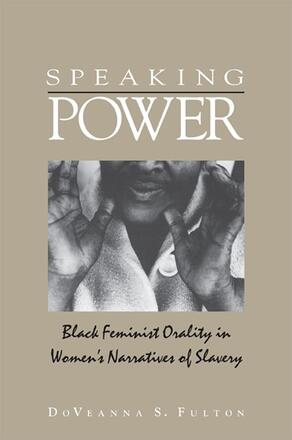
Speaking Power
Black Feminist Orality in Women's Narratives of Slavery
Alternative formats available from:
Analyzes Black women’s rhetorical strategies in both autobiographical and fictional narratives of slavery.
Description
In Speaking Power, DoVeanna S. Fulton explores and analyzes the use of oral traditions in African American women's autobiographical and fictional narratives of slavery. African American women have consistently employed oral traditions not only to relate the pain and degradation of slavery, but also to celebrate the subversions, struggles, and triumphs of Black experience. Fulton examines orality as a rhetorical strategy, its role in passing on family and personal history, and its ability to empower, subvert oppression, assert agency, and create representations for the past. In addition to taking an insightful look at obscure or little-studied slave narratives like Louisa Picquet, the Octoroon and the Narrative of Sojourner Truth, Fulton also brings a fresh perspective to more familiar works, such as Harriet Jacobs's Incidents in the Life of a Slave Girl and Harriet Wilson's Our Nig, and highlights Black feminist orality in such works as Zora Neale Hurston's Their Eyes Were Watching God and Gayl Jones's Corregidora.
DoVeanna S. Fulton is Associate Professor of English at Arizona State University.